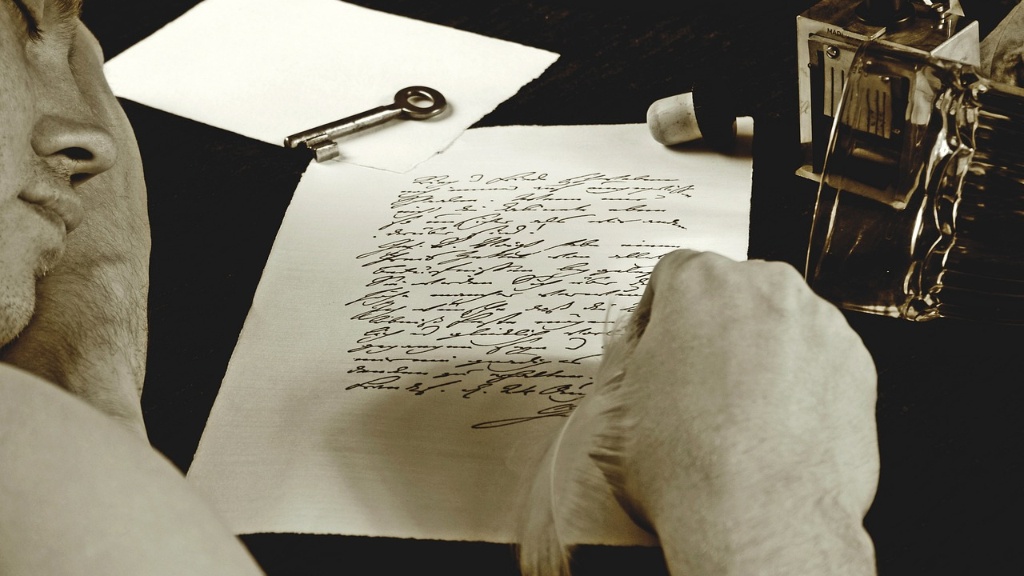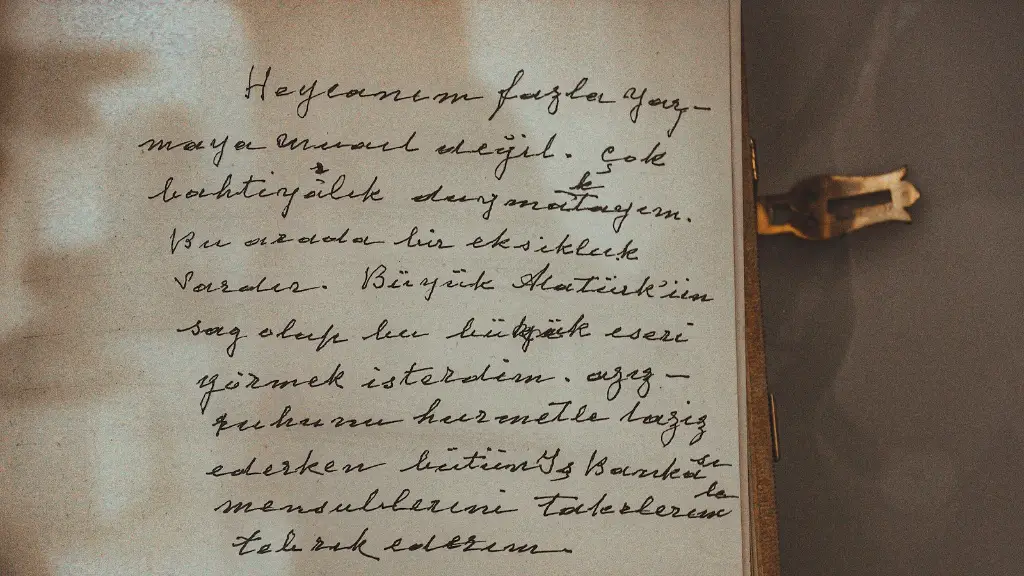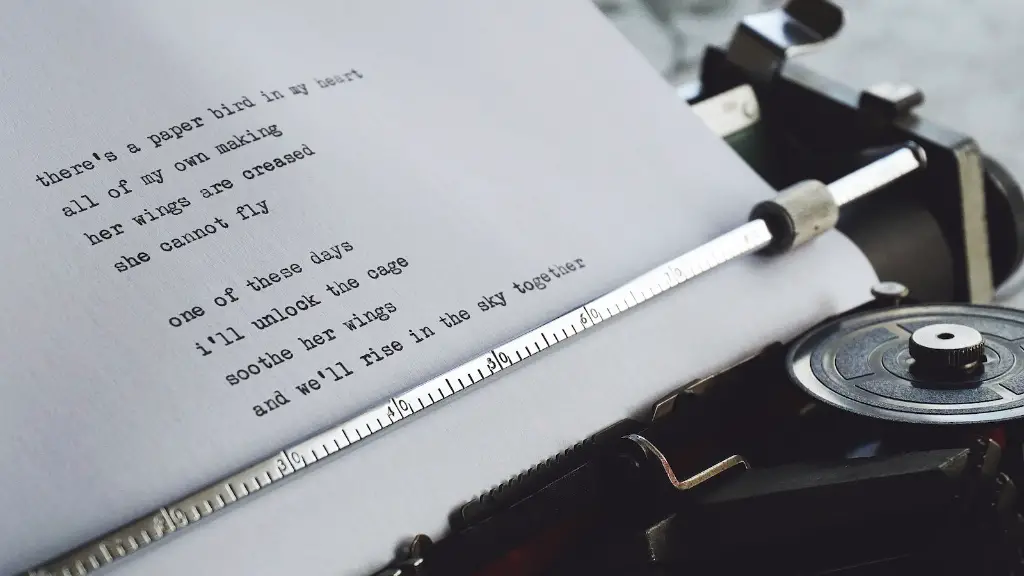Emily Dickinson is considered one of the most important American poets. She is known for her innovative use of language and her exploration of themes of death and immortality. While she is not typically associated with any specific literary or political movements, her work has had a profound influence on American literature.
There is no one answer to this question as Emily Dickinson’s writing does not adhere to any one literary movement. However, some have argued that her work shows influence from Transcendentalism and New England Puritanism.
What literary movement was during Emily Dickinson?
Emily Dickinson is a very important figure in American literature. As a Romantic poet, she was influenced by both transcendentalism and dark romanticism. Her poetry is known for its focus on the hidden consciousness and fragmented thoughts. This makes her an important bridge between the Romantic and Realistic eras.
Emily Dickinson was a highly observant person, and she drew inspiration for her writing from the world around her. She was particularly interested in nature, religion, law, music, commerce, medicine, fashion, and domestic life, and she used these topics to explore universal themes like the beauty of nature, the nature of the self, death and immortality, and love. Dickinson was a master of using images and symbols to convey her ideas, and her poetry is still cherished by readers today for its insight and originality.
How did Emily Dickinson feel about slavery
While Dickinson did not make political comments about slavery unlike Thoreau or Whitman, she was not totally indifferent to the issue. In fact, her attitudes toward slavery and African Americans were unstable and inconsistent, like those of her contemporaries. This is likely due to the fact that the issue of slavery was highly divisive in the nation at that time.
Dickinson’s poetry was heavily influenced by the Metaphysical poets of seventeenth-century England, as well as her reading of the Book of Revelation and her upbringing in a Puritan New England town, which encouraged a Calvinist, orthodox, and conservative approach to Christianity. The Metaphysical poets, including John Donne and Andrew Marvell, were known for their complex and often contradictory explorations of religious and spiritual themes, which Dickinson emulated in her own poetry. The Book of Revelation, meanwhile, with its visions of the end times and the afterlife, provided her with a rich source of images and ideas to draw on. And her Puritan upbringing instilled in her a deep respect for religious tradition and a suspicion of anything that strayed from the orthodox path. All of these influences can be seen in Dickinson’s poems, which are often marked by their cryptic and suggestive language, their unusual and unexpected images, and their meditations on death, God, and the afterlife.
Was Emily Dickinson a transcendentalist?
Emily Dickinson was a romantic, transcendentalist poet in the nineteenth century in the United States. Emily Dickinson’s biography displays the influences and forces that affected her writing. Dickinson was born in Amherst, Massachusetts, in 1830. Her father, Edward Dickinson, was a lawyer and her mother, Emily Norcross Dickinson, was a homemaker. Dickinson was the second child of three and the only daughter. As a child, Dickinson was educated at home by her mother and private tutors. Dickinson’s father was a strict Calvinist, and her mother was a more easygoing Episcopalian. Dickinson observed the strict rules of Puritanism, but she also experienced a more liberal view of religion through her mother. Dickinson’s education emphasized the importance of literature and language. In 1848, Dickinson began attending Mount Holyoke Female Seminary in South Hadley, Massachusetts. At Mount Holyoke, Dickinson studied grammar, rhetoric, Latin, and French. Dickinson also became interested in botany and chemistry. In 1849, Dickinson’s grandfather died, and her father experienced a mental breakdown. As a result, Dickinson was forced to leave Mount Holyoke and return home. Dickinson was disappointed by this turn of events, but she continued her education through reading and private study. In
Emily Dickinson was interested in the Civil War as an historical event. She may have internalized the war, and she certainly employed war imagery for a number of purposes. But the civil conflagration that consumed her nation was more than a trope in her work. Dickinson was interested in the Civil War as an historical event.
What was the main message for Emily Dickinson?
Dickinson’s seclusion allowed her to focus on developing her poetry. Her poems addressed emotional and psychological states such as loneliness, pain, happiness, and ecstasy; death, often personified; religion and morality; as well as love and love lost. This focus helped her to create some of the most beautiful and moving poems in the English language.
Emily Dickinson was an American poet who is considered one of the leading writers of the 19th century. Although she was a recluse and only published a handful of her poems during her lifetime, her work is now considered some of the best in American literature. Dickinson was born in Amherst, Massachusetts and spent most of her life in the town. She died in 1886 at the age of 55.
What is unusual about Emily Dickinson
Dickinson’s style was very unique for her time period. She disregarded many common literary rules and experimented with capitalization and sentence structure. Her work was inspired by religious psalms, but she often included her own creative pauses within the stanzas. This made her work stand out from other poets of her time.
It is interesting to note that Dickinson’s well-known near-absence of any interest in politics can be seen as a political act in itself. By shunning any serious consideration of social subjects, Dickinson may have been indicating that these things were unimportant or irrelevant to his own life of privilege. In doing so, he may have been making a statement about the role of politics in society more broadly.
Was Emily Dickinson progressive?
Dickinson was an amazing poet who was far ahead of her time. She had a true passion for poetry and this is evident in her work. She is still an appealing poet today because her work is timeless and relevant.
One of the attitudes that Emily Dickinson holds about death is that it is not the end of life. Instead, she holds the belief that death is the beginning of new life in eternity. In the poem “I Heard a Fly Buzz when I Died,” Dickinson describes a state of existence after her physical death.
Who was Emily Dickinson influenced by
The topic of abortion is incredibly controversial, and there are many different perspectives that people have on the issue. There are those who believe that abortion is always wrong, and that it is a form of murder. There are others who believe that abortion can be a morally acceptable choice in certain circumstances, such as when the pregnancy is the result of rape or incest, or when the woman’s life is in danger. There are also those who believe that a woman should have the right to choose whether or not to have an abortion, regardless of the circumstances. No matter what someone’s personal beliefs may be, it is important to respect the fact that everyone has a different opinion on this sensitive topic.
Mental illness is a difficult thing to deal with no matter who you are. It can be even more difficult when you are creative person. Both Emily Dickinson and Vincent van Gogh dealt with mental illness in their adult lives. There are indications that both suffered from major depression, bipolar disorder, and seasonal affective disorder. While they both found ways to express themselves creatively, they also both struggled with their mental illness.
What religion did Emily Dickinson follow?
Emily Dickinson was brought up in a Calvinist household and attended religious services with her family at the village meetinghouse. Congregationalism was the predominant denomination of early New England.
Whitman’s poetry is considered to be influential due to its long, flowing, and grand style. Dickinson’s poetry is also influential, but is more tightly structured and sharp. Whitman is sometimes credited as being “the father of free verse” as most other poetry in his time employed traditional meter and rhyme schemes. However, both Whitman and Dickinson are considered important American poets.
Final Words
No, Emily Dickinson was not a part of any movements.
There is no evidence that Emily Dickinson was a part of any movements. She was a very private person and only a small circle of people knew her well. It is likely that she was not interested in any public causes or activities.





